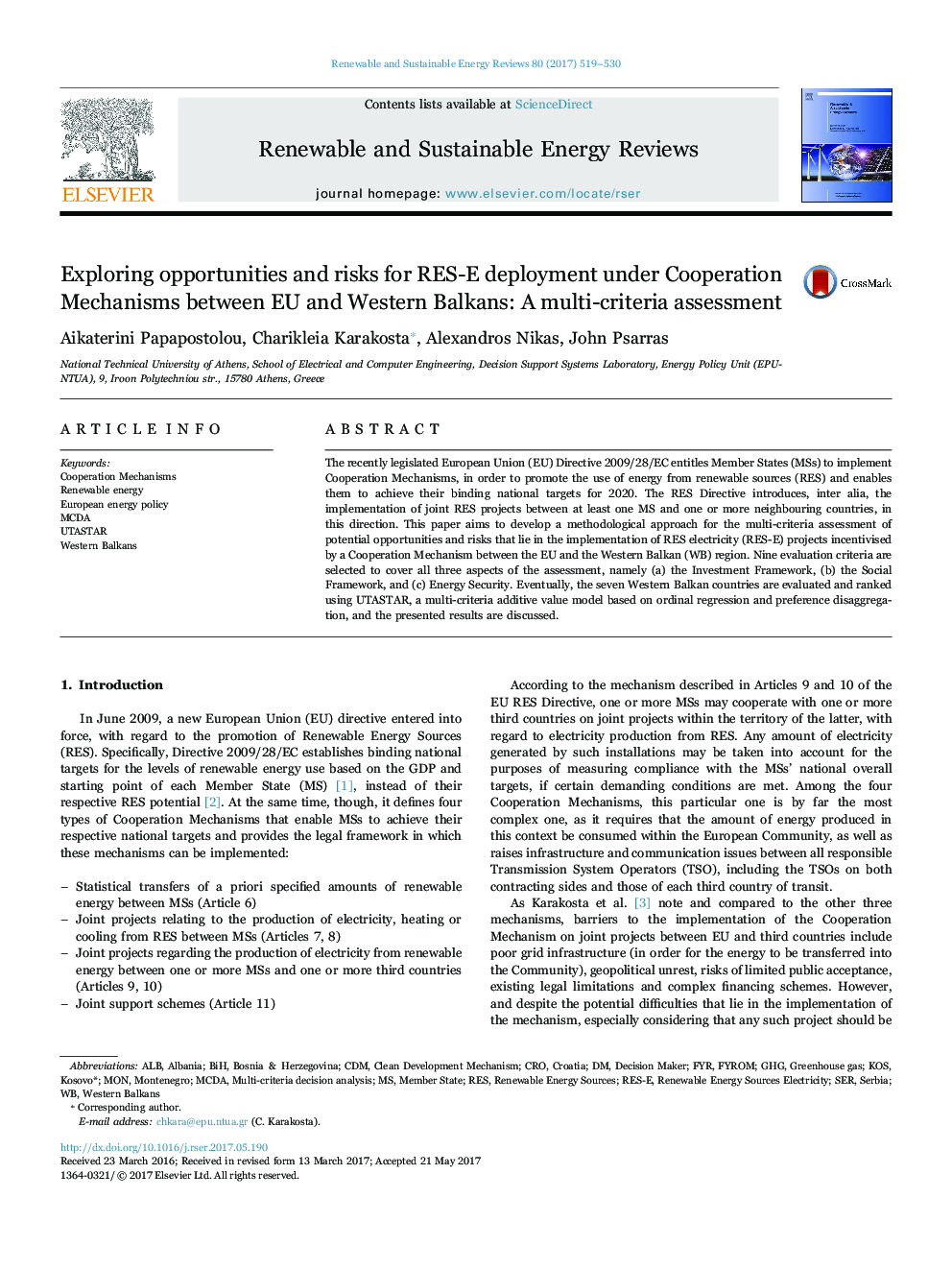| Article ID | Journal | Published Year | Pages | File Type |
|---|---|---|---|---|
| 5482074 | Renewable and Sustainable Energy Reviews | 2017 | 12 Pages |
Abstract
The recently legislated European Union (EU) Directive 2009/28/EC entitles Member States (MSs) to implement Cooperation Mechanisms, in order to promote the use of energy from renewable sources (RES) and enables them to achieve their binding national targets for 2020. The RES Directive introduces, inter alia, the implementation of joint RES projects between at least one MS and one or more neighbouring countries, in this direction. This paper aims to develop a methodological approach for the multi-criteria assessment of potential opportunities and risks that lie in the implementation of RES electricity (RES-E) projects incentivised by a Cooperation Mechanism between the EU and the Western Balkan (WB) region. Nine evaluation criteria are selected to cover all three aspects of the assessment, namely (a) the Investment Framework, (b) the Social Framework, and (c) Energy Security. Eventually, the seven Western Balkan countries are evaluated and ranked using UTASTAR, a multi-criteria additive value model based on ordinal regression and preference disaggregation, and the presented results are discussed.
Keywords
Related Topics
Physical Sciences and Engineering
Energy
Renewable Energy, Sustainability and the Environment
Authors
Aikaterini Papapostolou, Charikleia Karakosta, Alexandros Nikas, John Psarras,
